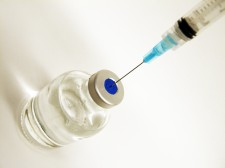 All pregnant women should receive Tdap shots, a combination vaccine that protects against whooping cough (pertussis), tetanus and diphtheria, the Centers for Disease Control and Prevention announced yesterday.
All pregnant women should receive Tdap shots, a combination vaccine that protects against whooping cough (pertussis), tetanus and diphtheria, the Centers for Disease Control and Prevention announced yesterday. All pregnant women should receive Tdap shots, a combination vaccine that protects against whooping cough (pertussis), tetanus and diphtheria, the Centers for Disease Control and Prevention announced yesterday.
All pregnant women should receive Tdap shots, a combination vaccine that protects against whooping cough (pertussis), tetanus and diphtheria, the Centers for Disease Control and Prevention announced yesterday.
With 2012 being the nation s worst year for whooping cough since 1959 (so far 32,000 cases and 16 deaths), health officials have been increasingly pushing to get older children and adults vaccinated; even if they received the usual series of shots, they should get a booster.
Although there have been increased efforts pushing for the vaccine, fewer than 3 percent of pregnant women are vaccinated even though an estimated 30 percent to 40 percent of infected newborns get the disease from their mothers, according to the Centers for Disease Control and Prevention.
The recommendation states that women should be vaccinated during the third trimester in order for the fetus to receive the most protection from the vaccine. Furthermore, CDC experts have found no evidence of serious risk to either mothers who received the vaccine, nor to their newborns. And they estimate that enacting the recommendation could reduce whooping cough cases by 33 percent, hospitalizations by 38 percent and deaths by 49 percent.
When the new Tdap vaccine was introduced a decade or so ago, it was hoped that it would as effective as the old one, said ACSH s Dr. Gilbert Ross. Unfortunately, it seems that the protection against pertussis wanes after a few years, leaving older teens and adults vulnerable and worse, their tiny relatives who are vulnerable to severe infection.


